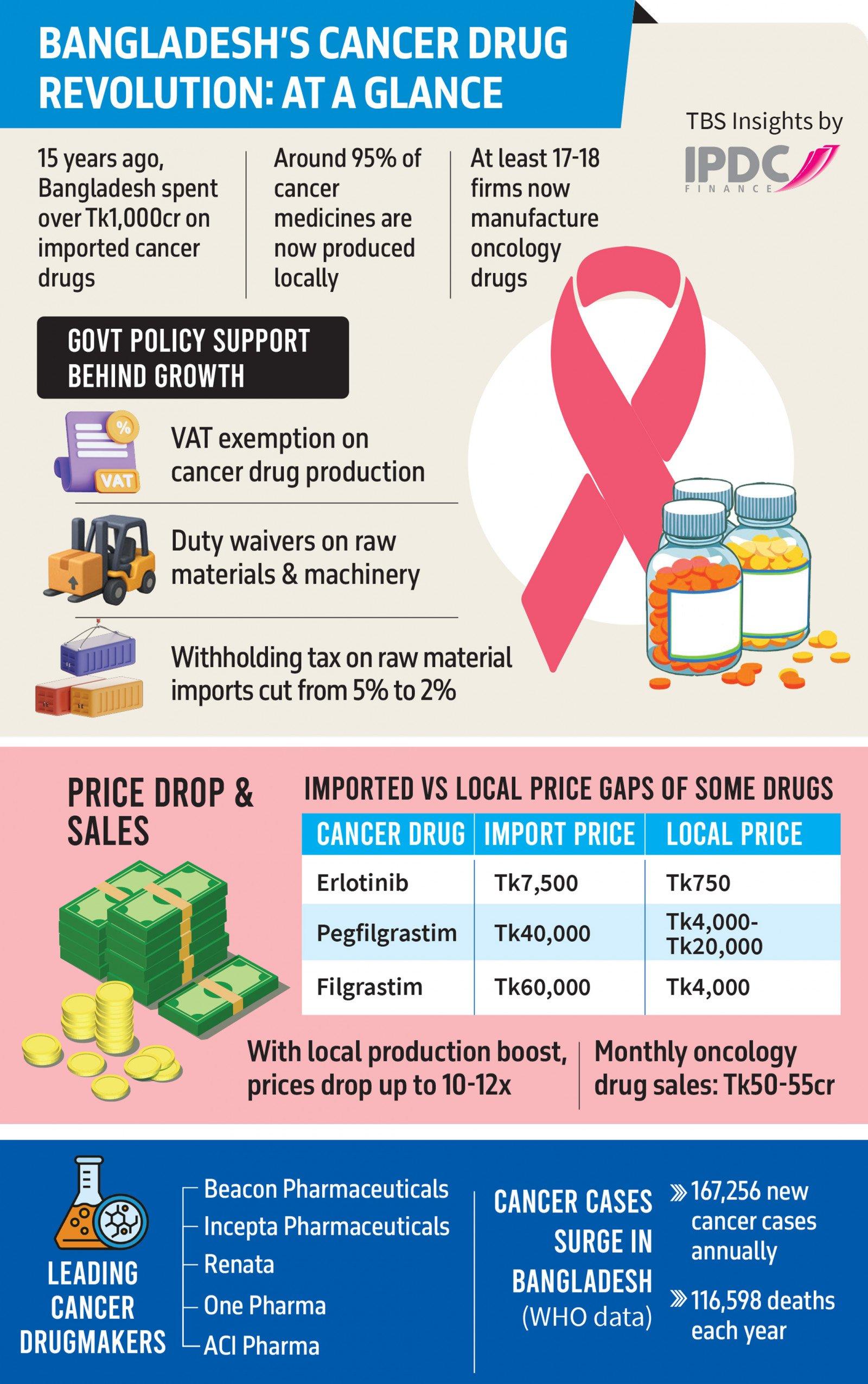Boosted by jsonstein@masto.deoan.org ("Jeff Sonstein"):
ml@social.mitexleo.one ("Mitex Leo") wrote:
Fifteen years ago, Bangladesh relied on costly imported cancer drugs, spending over Tk1,000 crore annually and leaving treatment out of reach for most. Over the past decade, local pharmaceutical growth, spurred by rising cancer cases and supportive policies, has transformed access - now, about 95% of cancer medicines are made domestically, making life-saving care far more affordable.
